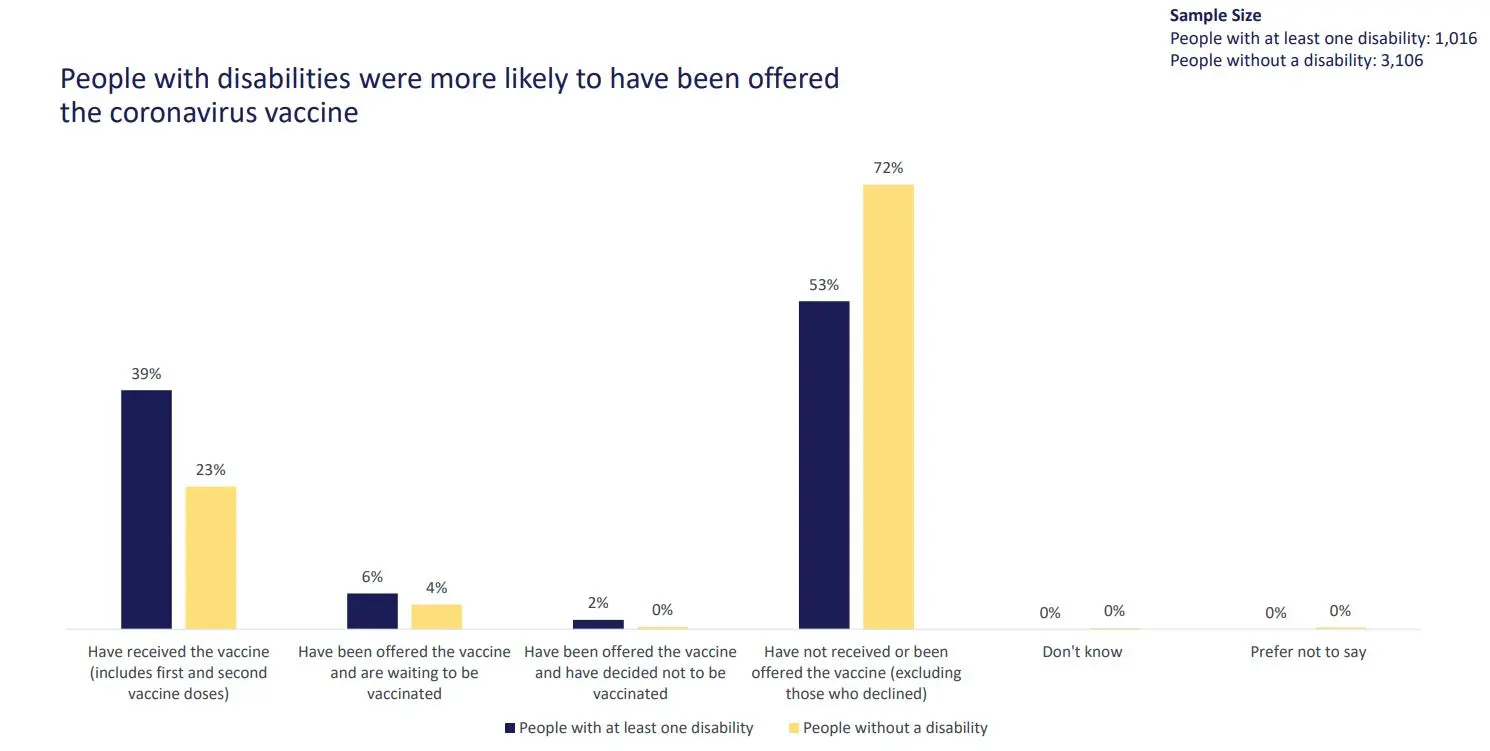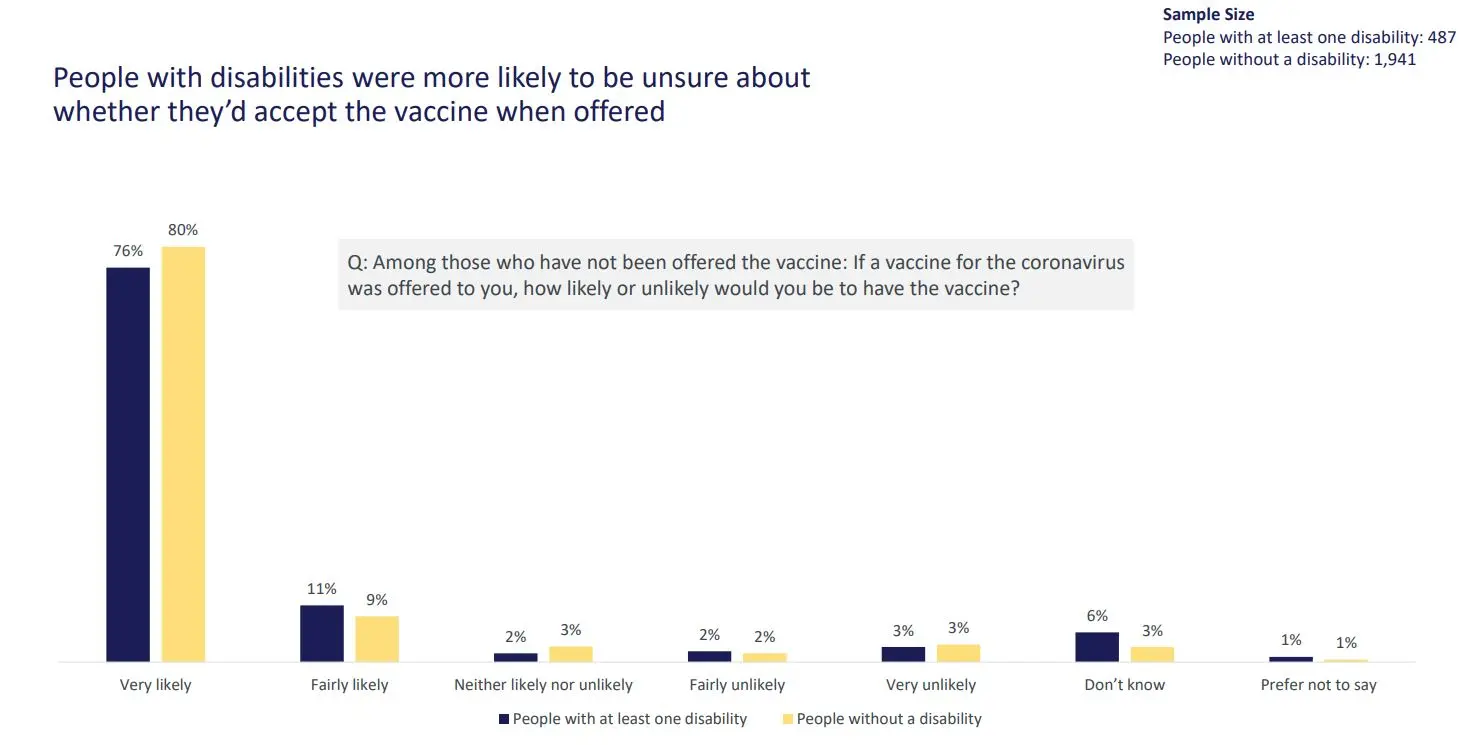26/03/2021
How to increase COVID vaccine uptake among those with disabilities
Rose Payne analyses new ONS data to reveal that people with disabilities are more likely to be unsure whether they’d accept the COVID-19 vaccine and why that might be.
The tragic and disproportionate impact that COVID-19 has already had on those living with disabilities in the UK was thrown into relief earlier this year when government data showed that 6 out of 10 people who have died with COVID-19 in the UK to date are disabled.
The government response to these shocking figures was to speed up the prioritisation of those with disabilities for vaccination. However, the Office for National Statistics (ONS) has now released further interim data which can tell us more about attitudes towards vaccination among those with disabilities which could be impacting vaccine uptake.
Using this brand new data we can compare the experiences and views of people with disabilities to those without a disability towards the COVID vaccine, and ask what we can do to overcome the factors that could stall vaccine uptake among these vulnerable groups.
The ONS data discussed is based on a survey of 4,122 people in February this year.

What does the data tell us?
We begin with some good but expected news, shown in the graph below, that people with a disability are more likely to have been offered the vaccine (47%) compared to people without a disability (27%).

However, the survey also revealed a more concerning trend, in the graph below, that people with a disability who had not been offered the vaccine were twice as likely as their counterparts without a disability to say that they were unsure whether they’d accept the vaccine.

Why might those with disabilities be less sure about whether they’d accept the vaccine?
Survey respondees who had not accepted the vaccine were asked why they'd refused. Some areas were common for all respondees, whether they had a disability or not:
- Wanting someone more in need of the vaccine to receive it first
- Being worried about side-effects
- Waiting to see how well the vaccine works
However, some reasons were much more likely to be given by someone with a disability:
- Being worried about catching COVID-19 at the vaccination centre or GP surgery
- Being unable to travel to the vaccination centre
- Being worried about the effect on an existing health condition
For those working to maximise uptake of the COVID-19 vaccine, the ONS data offers a wealth of insight. The reasons given by all respondees highlight the importance of being clear on the science and side-effects behind the vaccine when aiming to increase uptake.
The reasons more often given by people with a disability could be used to inform communications around vaccination and suggest that offering safe and reliable transport to and from vaccination centres, or bringing the vaccine out into the community, could be an effective way to increase uptake among this section of the population.
If you have any experience working in this area, we'd love to hear from you. Please get in touch at hello@thepsc.co.uk.
Author: Rose Payne
Latest News & Insights.

The PSC is committing to new, more challenging sustainability targets
We are delighted to announce that we are committing to new, ambitious emission…

What does a good net zero programme look like for Integrated Care Systems?
The NHS has committed to reaching net zero in 2045 and Integrated Care Systems…

The PSC Wins Double Silver at the HSJ Partnership Awards 2024
We are delighted to announce that we have been awarded double silver at The HSJ…
